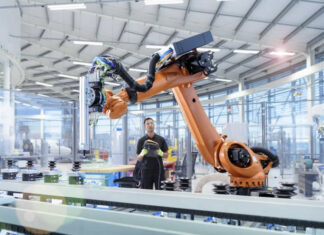On Monday evening, Olaf Scholz will answer questions from citizens. The chancellor is obviously trying to respond to his interlocutors, but keeps falling back into the role of someone who wants to know everything better.
Olaf Scholz is not considered the greatest communicator among our politicians. But he is undoubtedly hardworking. A TV speech a week ago, government statements, countless interviews – the chancellor has long overshadowed his predecessor in this regard.
And yet: 68 percent of Germans are of the opinion that the federal government does not adequately explain its policy. This is one of the reasons why he tried again on Monday evening and answered questions from four citizens on RTL at a late hour. According to their own statements, they did not feel much wiser or at least more enlightened after 80 minutes.
That morning, SPD co-chairman Lars Klingbeil advised his party, and thus also his chancellor, to talk more about the increased cost of living and energy prices instead of constant arms deliveries to Ukraine. According to Klingbeil, this is a consequence of the poor SPD results in North Rhine-Westphalia and Schleswig-Holstein.
Scholz was only able to follow Klingbeil’s advice to a limited extent. Too many questions from the group of four and the moderator Pinar Atalay revolved around the war in Ukraine. However, Scholz also addressed the financial worries of a single parent receiving Hartz IV and the job worries of a steel worker. At least he tried.
It quickly became apparent that general statements about relief packages or strategies to become independent of Russian energy exports can only partially allay the skepticism and concerns of the so-called little people. Declarations of intent, no matter how euphonious, cannot plug the hole in the household budget. It is also not easy to explain that it often takes quite a long time in parliamentary business before announcements become laws and these payments follow.
You have to give Scholz one thing: As in the election campaign, he manages to adorn himself with a stoic expression with “successes” that he has nothing to do with. He thinks to his and his government’s advantage that the basic income tax allowance will be increased retroactively to January 1 and that pensions will rise sharply from July onwards. This chutzpah is remarkable. The government is legally obliged to adjust the basic allowance annually to the increased subsistence level. Pensions, in turn, increase to the extent that the Pensions Act dictates. Neither has anything to do with special efforts by the traffic light government. Scholz is obviously speculating coldly that the citizens don’t know how it all works anyway.
Because the topic of “arms deliveries” could not be avoided, Scholz tried here too to let his politics shine in a brighter light than is appropriate. If Scholz’s stories are to be believed, the Federal Republic of Germany was even a pioneer in supporting the Ukrainian armed forces. When Germany backed away from its policy of not delivering weapons to crisis areas, “the others did the same,” Scholz claims. In reality, other countries had already massively helped the Ukrainians when Defense Minister Christine Lambrecht (SPD) made a mockery of herself and us by announcing that she would deliver 5,000 helmets.
Scholz was visibly trying to respond to his interlocutors and was “very moved” when a Ukrainian living here reported on the destruction of her homeland. But time and again he fell back into the role of someone who always knew everything better and always wanted to be on the right side. In retrospect, he admitted that Germany was so dependent on Russian energy imports as naïve. He himself, on the other hand, had “personally for many years” been committed to building an infrastructure for LPG imports. You always learn something new when you listen to the Chancellor – at least a lot about his self-assessment.
Olaf Scholz made it to the Chancellery because he has somehow excluded all negative poll numbers for him and the SPD since 2021. Even as chancellor, he is sticking to the strategy of seeing the world the way he wants to see it.
He cannot deny the heavy defeat of his party on Sunday. However, during the election campaign he says he “felt very deeply” that the government’s course was “supported by a broad majority”. According to this, the voters in North Rhine-Westphalia as well as in Schleswig-Holstein gave the SPD the historically worst election results – despite their alleged support of the traffic light course? That doesn’t quite fit with what the Chancellor “felt very deeply”.
Was Lars Klingbeil satisfied with his chancellor’s appearance on TV? In any case, Scholz spoke as much about social issues as his interlocutors allowed. But what the great liberal Friedrich Naumann stated more than 100 years ago seems to be – in a figurative sense – up to date: “What use is the best social policy to us when the Cossacks come”.
















































